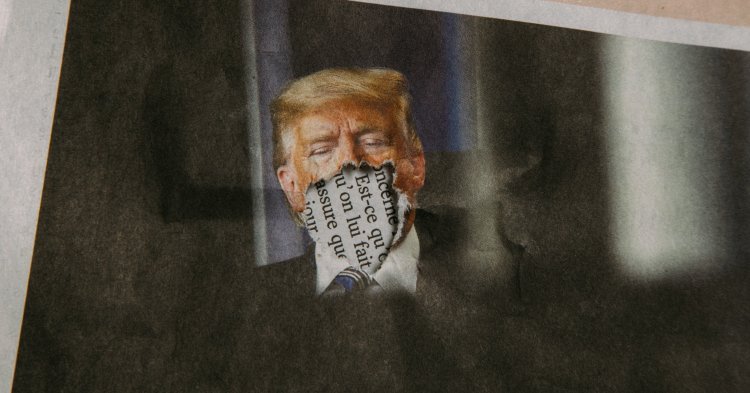Twitter and Facebook’s decision
Twitter decided to permanently ban Trump from its services due to the risk of ‘further incitement’ of violence. The firm’s decision was based on two tweets assessed as intentionally fueling the glorification of violence and possibly inspiring the criminal acts witnessed in the Capitol. In the following lines, one can find both messages according to Twitter, signals the user’s incitement of violence to overturn the election:
- ‘The 75,000,000 great American Patriots who voted for me, AMERICA FIRST, and MAKE AMERICA GREAT AGAIN, will have a GIANT VOICE long into the future. They will not be disrespected or treated unfairly in any way, shape or form!!!’
- ’To all of those who have asked, I will not be going to the Inauguration on January 20th.’
Similarly, Facebook CEO Mark Zuckerberg highlighted Trump’s alleged attempts to incite violence and undermine the democratic process to set in motion his indefinite suspension from Facebook. Zuckerberg explained that ‘the risks of allowing the [former] President to continue to use our service during this period are simply too great.’ According to Dylan Buyers, Twitter’s and Facebook’s suspensions ‘were a landmark moment for America’s social media giants[,] and the most visible demonstration yet of their absolute power’. For years, Trump communicated with his audience via social media platforms to drive the news cycle, markets, and policies – a liberty once taken for granted and now taken for good. Social media’s ban, orchestrated by their few executives, openly shows the great power that is held by tech companies to influence ‘the global public conversation’, as Twitter CEO Jack P. Dorsey puts it.
Where does Europe stand? Or with whom?
Several high-profile European leaders, including German Chancellor Angela Merkel and European Commissioner for the Internal Market Thierry Breton, have voiced their opinion about Trump’s ban from the social media sphere. Merkel described the ban as ‘very problematic’, since freedom of opinion is a fundamental right that should be addressed by the rule of law and its legislators, not by the management of social media platforms. By the same token, France’s finance minister Bruno Le Maire declared that ‘digital regulation should not be done by the digital oligarchy’. On top of that, NBC News revealed that another cost of the decision ‘is that it sheds light on the fact that a small group of individuals get to make these decisions.’ This last point was further made by Breton, who believes a CEO’s power to be ‘perplexing’ and that prompted Britain’s health secretary Matt Hancock’s statement that tech companies are now ‘taking editorial decisions.’
Merkel’s objection to Twitter and Facebook’s decision is grounded on Germany’s Network Enforcement Act, which dictates that users must be able to flag content to be reviewed and removed within 24 hours. In other words, and as stated by Special Correspondent Lenora Chu, ‘German lawmakers set the legal framework, and social media platforms must operate within it.’ It is the government, in other words, which is in charge of regulation, not the platforms themselves. Nevertheless, American media lawyer Ian Rosenberg argues that Germany’s way is ‘absolutely opposite (sic.) to the American constitutional tradition, which is that the government should be prohibited from regulating private speech. They are totally antithetical to each other.’
A ban from hand-picked banning
On a different note, Will Oremus believes that criticism should be centered towards ‘the platforms’ longstanding effort to present their content moderation policies as objective, neutral, and consistent, when they are revealed on a regular basis to be mutable in the face of changing circumstances and public pressure’. What the author asks for is the concurrence that content moderation is subject to individuality and, therefore, requires a transparent decision-making process.
Oremus dives deeper, bringing to light less apparent, but darker shades of social media. The main issue, he adds, foregrounds the already blurred lines between the online and offline worlds, since ‘online communities plan real-world events; real-world events fuel online conspiracies. It’s a feedback loop’. Indeed, it is a loop encouraged by social media algorithms, which rank content based on how sensationalist, extremist, or partisan it is, and isolate its readers in a toxic and personalised informational environment ultimately promoting hatred and the polarization of public opinion.
Hence, the author underlines how ‘all the focus on the platforms’ treatment of Trump as an individual is at best tangential to the deeper issue of how their dynamics fueled his rise’. Banning Trump should not be seen as a conscious act of improvement, but as a circumstantial decision to gain momentary approval.
References
- https://www.csmonitor.com/World/Europe/2021/0115/Europe-criticizes-Trump-Twitter-ban-but-not-for-reason-you-d-expect
- https://www.nytimes.com/live/2021/01/06/us/electoral-vote?auth=login-google
- https://blog.twitter.com/en_us/topics/company/2020/suspension.html
- https://www.nbcnews.com/tech/tech-news/how-facebook-twitter-decided-take-down-trump-s-accounts-n1254317
- https://onezero.medium.com/the-deplatforming-of-donald-j-trump-a61a1df0ad8f
- https://www.forbes.com/sites/roberthart/2021/01/11/problematic-and-perplexing-european-leaders-side-with-trump-over-twitter-ban/?sh=3d3efab913b5


1. On 29 January 2021 at 18:56, by Kevin Replying to: Trump’s Twitter and Facebook ban sheds light on the power struggle between tech companies and the rule of law
Replying to: Trump’s Twitter and Facebook ban sheds light on the power struggle between tech companies and the rule of law
I can understand Angela Merkel’s position in the sense that it should be lawmakers in the U.S. to make this change on a President, and not left up to management of these social media companies.
Freedom of Opinion however, is where I disagree with Merkel because that freedom was never taken away from Former President Trump. As a president, you are able to call a Press Conference whenever he/she feels it is necessary for addresses/announcements. The voice of a U.S. President will always be heard.
My stance is that while in office, a President and Vice President should not be allowed to have a social media account.
Follow the comments: |
|
